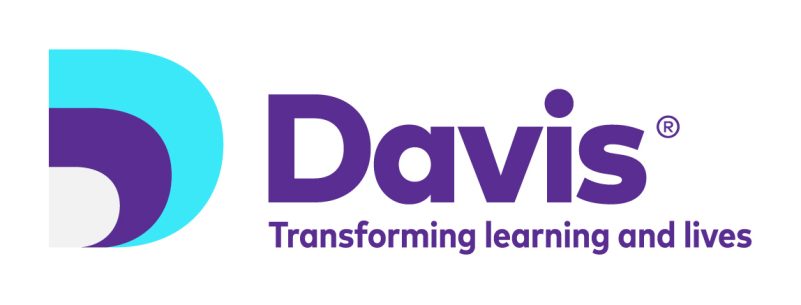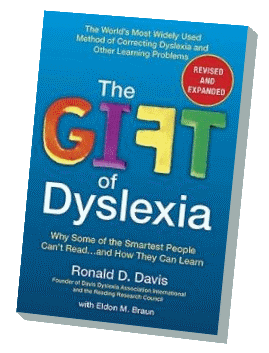 Dyslexia is not tied to measurements of intelligence. In fact, dyslexia is commonly associated with above-average intelligence. That’s why parents and teacher are often baffled when a child who is obviously smart and capable struggles with reading and writing.
Dyslexia is not tied to measurements of intelligence. In fact, dyslexia is commonly associated with above-average intelligence. That’s why parents and teacher are often baffled when a child who is obviously smart and capable struggles with reading and writing.
But parents are often stymied when seeking help for their child in school. When they raise questions about their child’s struggles, they are often told that their child is “too smart” to have dyslexia. Sometimes even when the child is tested for learning difficulties, the result is that the child doesn’t test badly enough to qualify for services. The parents might be told that their child is lazy, or just needs to try harder; or problems with academics may be mistakenly given other labels, such as Attention Deficit or or a behavioral disorder.
These statements are based on misinformation and can be harmful and discouraging to the child– who is probably working as hard as he knows how. However, in a school setting, they can also reflect a sad reality: the “twice gifted” child is probably a poor match for the special education services available at the school, which may be geared to children who are much less capable. In fact, bright dyslexic children placed in special ed settings usually fare worse over time than counterparts who were given no support at all.
Fortunately, a formal diagnosis is not needed in order to get help. These hard-to-diagnose kids very progress very quickly when introduced to Davis tools and concepts..They can quickly learn and embrace the Davis mental self-regulation skills. With the self-understanding and elimination of perceptual barriers that comes with a Davis program, these children often experience rapid and remarkable gains. After a Davis program, many are reading above their grade level and are able to effectively apply their newly acquired skills to excel in school.







Hello, I was diagnosed with dyslexia in my last year of primary school, this June I will be turning 40. Throughout my years I have learnt to be strong in dealing with my dyslexia. However i never really recognised that the problems I struggle with is most probably due to me being dyslexic. I realise now that it is not just spelling or maths that are caused from me being dyslexia but many other things. And to help me be truly happy and confident I really need help in achieving this. Thanking you in advance.
Hi Hayley, How are you getting on? Did you find a facilitator near you? If not you can find one here https://www.davismethod.org/
Otherwise, you can purchase the book by Ron Davis called ‘The gift of Dyslexia’ which is a guide to help you through Davis techniques. Let me know if there is anything else I can do to help.
I am 68 yrs old senior female senior . I have only found out I was dyslexic at age 40 yrs old .
I have hard time concentrating to read a book or textbook since childhood . I have short contrentraction or focus problems .
I am thinking should I gget counseling or buy a colored eyeglasses for dyslexic as this British young adult and to concentrate in mine life .
I am planning to do mine spiritual pschic bodywork healing business but ,I need to organize and create mine online and podcast business asap because mine next chapter in mine life demands I set up to start but mine desylixic has caused me delayed after caregiving and brain stroke .
Is there anybody in Honolulu Hawaii or Hawaii doing counseling here ! !!
Or someone in California do tête-à-tête zoom or FaceTime or teleportal ???
=
Merry, you can find a list of Davis Facilitators who can provide online services here: https://www.davismethod.org/online/
There are none in Hawaii, but you can use the map at the top of the page to zoom in on the West Coast of the US to find someone in a time zone that works for you.
There are also many Facilitators who are willing to travel, and probably quite a few who would be delighted to come to Honolulu to work with you.
Hi, my son seem to fall into a ‘lazy’ but intelligent category. What is the difference between dyslexia and dysgraphia? He can read (took him a while to get thee) but comprehension, spelling and hence writing is something he dreads of. would learning a phonics approach do more harm than good? We went to a speech pathologist and she insists on doing the Spalding program. My son is nearly 10, we’re in Australia. Also, what is involved in becoming a Davis method facilitator? Thank you.
Dysgraphia often stems from the same underlying causes as dyslexia – although that is not always the case. That is something that a Davis Facilitator could evaluate in determining whether a particular child will benefit from the Davis program. You can use this page to see where the Davis Facilitators in Australia are located — and then call or email one to get more information: https://www.davismethod.org/loc/australia/
Davis Facilitators attend a series of workshops and practice meetings and complete at least 180 hours of field assignments in order to qualify for licensing. It generally takes a year or more to complete all facets of training. The training sequence is described here: https://www.davistraining.info/course-descriptions/davis-facilitator-licensing/davis-facilitator-licensing-overview/
Hi,
My grandson is 6 yrs old, he is struggling very much with reading and constantly states that he can’t read. He is a very bright boy. The primary school he is at were putting a huge amount of pressure on him, they are an outstanding school in terms of the ofsted report, for results of seats tests, and overall performance.
My son has asked them to stop the pressure on him. He developed a facial tic due to the pressure.
How can we help him, the school has said that testing doesn’t happen until he is 8years old. He himself has said he wishes he was blind as then he would get lots of help. I find it heartbreaking when he makes comments like that.
Regards lesley
For a 6-year-old, a good option would be a Davis Home Kit for Young Learners or to arrange a Davis Reading Program for Young Learners with a Davis Facilitator. That program combines direct work with the child with coaching for the parent (or grandparent) who will continue working at home with the child.
It is very important to relieve the pressure that the child is getting from school — because at age 6, the harm that is being done by his negative school experience is more significant than his reading ability. He still has plenty of time to learn to read — and the Davis approach will provide an age-appropriate set of tools geared to his learning strengths and developmental age. But the harm caused by the stressful school environment can result in him developing strong emotional triggers that will make it even more difficult for him to learn. He needs to experience the early steps of reading in a supportive, relaxed environment where he can experience success and build confidence.
Can I have your service in south Africa
You will find listings for South Africa on this page of our website: https://www.davismethod.org/loc/south-africa/
My daughter is 11. She was tested two years ago and we were told she has dyscalculia Would these sessions help her with numbers as well as letters? Has anyone else used it for dyscalculia?
Barbara, we have a specific program developed for dyscalculia called Davis Math Mastery. See https://www.davismethod.org/davis-programs/ for a list of the various programs. However, if you go to a Davis Facilitator, the Facilitator will recommend the best program as part of the initial evaluation process. Sometimes we find that that the math problems are connected to underlying reading problems and recommend starting with with Dyslexia Correction program or combining a dyslexia and math program.
I am dyslexia but need help with it to move on with my career future.
A Davis Facilitator can help you. You can find listings for the UK here: https://www.davismethod.org/loc/uk-ireland/
Are there any Davis facilitators in Australia ? My son is 42 and Severely dyslexic., which I’ve known since he was about 2 years old. He’s suffered all his life: however, is extremely intelligent, has a university degree in media and studying for another degree at present but is very depressed.
Cris, you will find Australian facilitators listed here: https://www.davismethod.org/loc/australia
I am a teacher at Ashbury Primary School, in Montagu, many of my kids in class struggle to write and read, I want to know how can I test them to know if some is dyslexic?
We have a simple online screening tool you can use to get a sense of your students’ learning profiles, at https://www.testdyslexia.com/
This can not give you a formal diagnosis, but it will give you a better understanding of your students’ learning strengths and weaknesses.
My 9-year-pld daughter got dyslexia. We live in Bangkok, Thailand. How can we access your programs? I’m trying to find anybody who can help her.
Unfortunately there are no Davis providers in Thailand. However, you can learn about our methods from the book, The Gift of Dyslexia by Ron Davis. This book is available from all major online booksellers. You can find more about resources we offer at https://www.davismethod.org/resources/books-and-kits/
My son is 21 years old and needs help with dyslexia. Is this method effective with adults, and if so, where can I find a facilitator in Florida?
Yes — the program is effective with adults of all ages. You will find listings for Florida on this page: http://www.davismethod.org/loc/florida
My daughter was 21 when she went through the corrective class. It helped her so much and also gave her back some confidence that the school system had seemed to taken from her. She is doing much better in college now and realizes she’s gifted instead of slow.
The Davis program is very good at helping them bridge the gap between textbooks and the mind photos she sees. As a mother, I was astounded by what I even learned about the gift of Dyslexia.